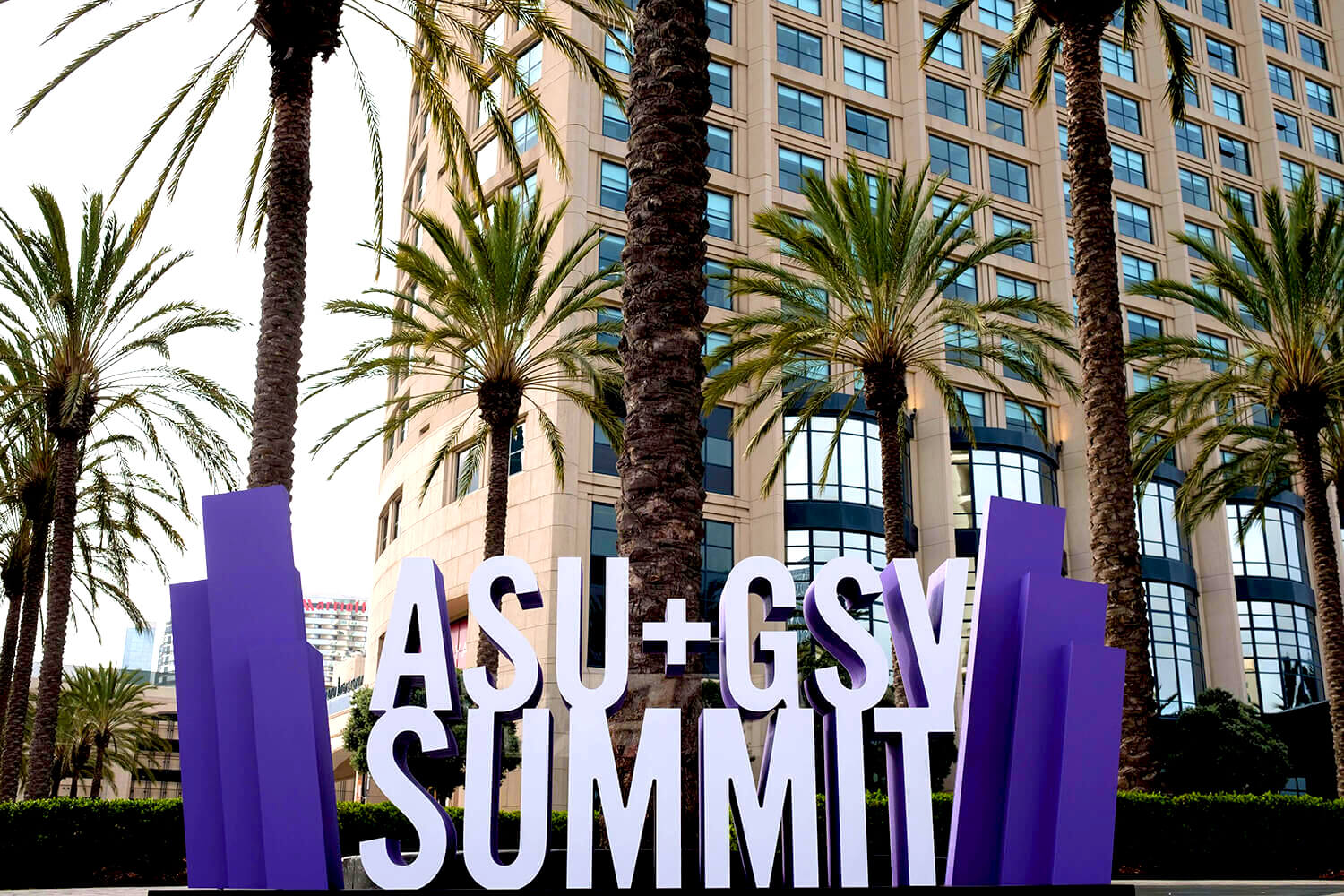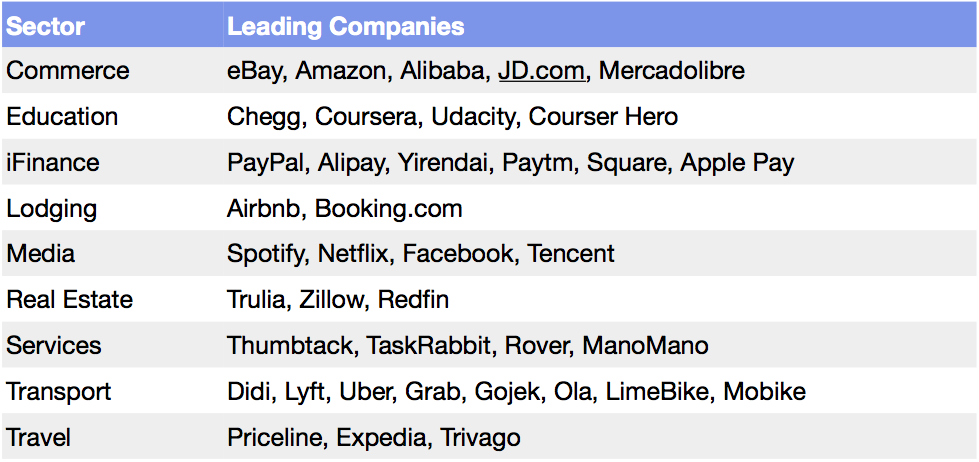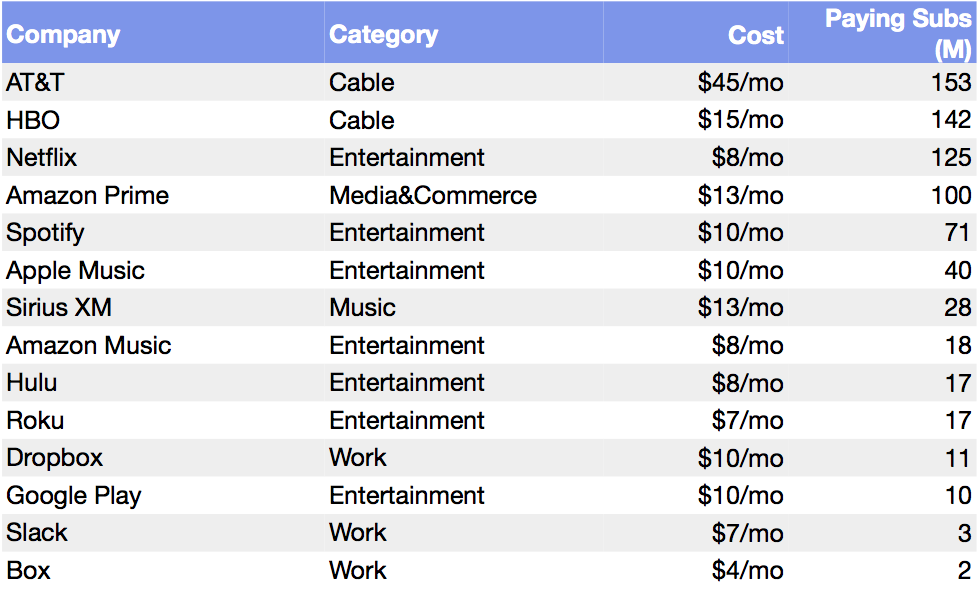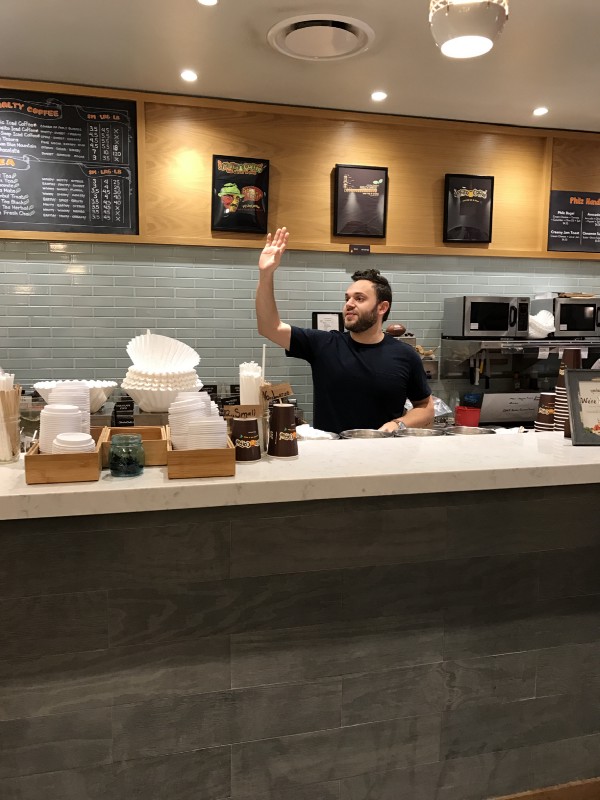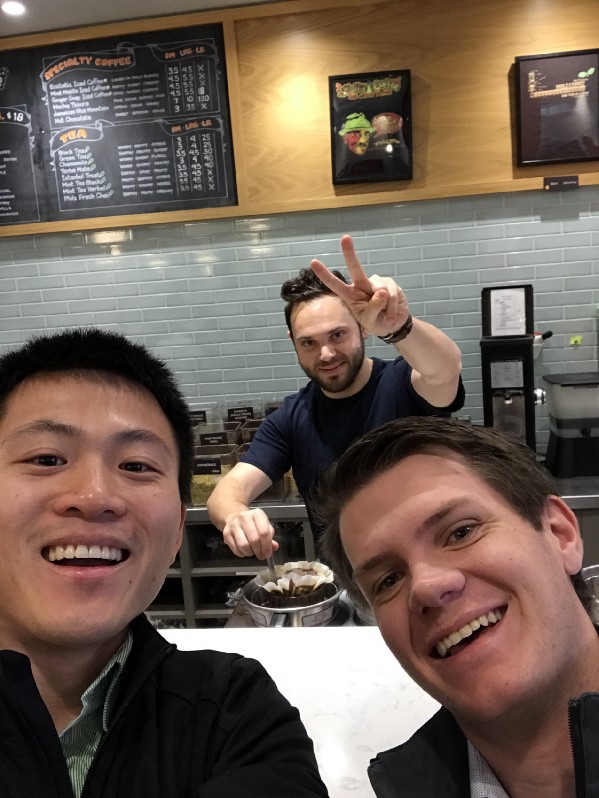Market Snapshot
| Indices | Week | YTD |
|---|
Last week we hosted the ninth annual ASU+GSV Summit in San Diego, a gathering of leaders from across the global innovation economy with the mission of accelerating exponential ideas in education and talent. We welcomed over 4,000 attendees from 40 countries, including 900 speakers and 450 presenting companies.
As I observed in my opening night speech, what makes the Summit so impactful is the unusual “cocktail” of participants we convene, with the common ingredient being a commitment to giving everybody an equal opportunity to participate in the future.
We all go to conferences where there is intellectually stimulating conversations and compelling speakers. This year’s Summit had its fair share, including former heads of state (George W. Bush and Vicente Fox), artists and activists (Matthew McConaughey and John Legend), and leaders across a broad range of issues related to the future of education and talent (Grit author Angela Duckworth, former U.S. Secretary of Commerce Penny Pritzker, and others).
But at most conferences, when you leave, it’s over. At the ASU+GSV Summit, it’s different. This is why the Summit has so much momentum. People come because things happen here. Connections are made. Capital is raised. Ideas are brought to life. People come here to make things happen.
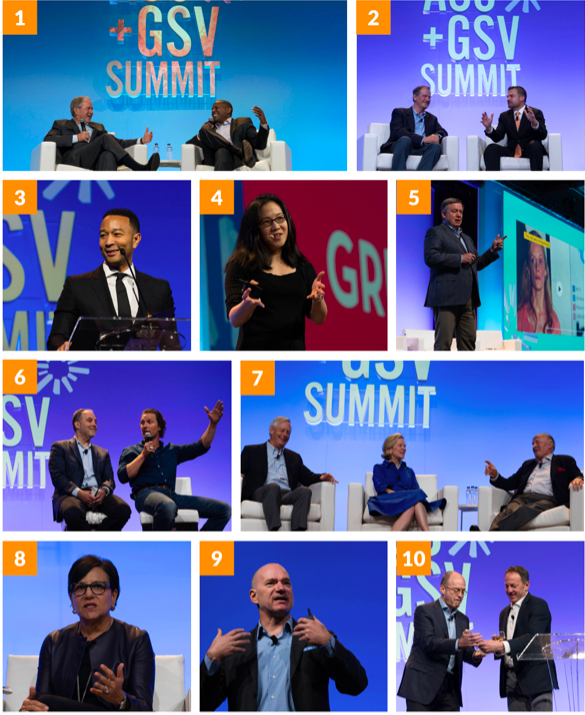
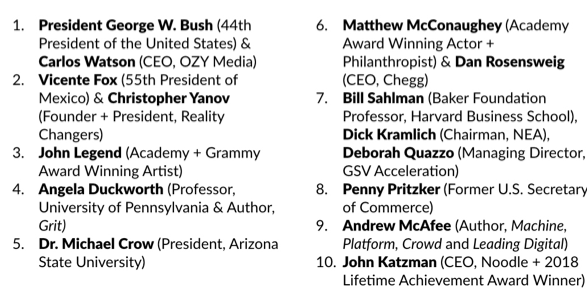
THE BIG BANG
For much of human history, the world has evolved in linear increments. In 1492, for example, Christopher Columbus sailed across the Atlantic with a fleet of wooden ships, navigating with the stars.
If Columbus were to time travel to the present day — approximately 500 years after his famous voyage — the scale of change would be incomprehensible. We fly across the Atlantic in a matter of hours. We navigate with “global positioning systems,” not the stars. And, speaking of stars, we’re exploring them with space ships. Heck, in February, Tesla launched a car into space as a publicity stunt. Columbus’ mind would explode if he saw any of these developments — let alone the Internet or smartphones.
The same could not be said for someone transported to Columbus’ time from 500 years earlier. The ships would look similar. So would cities for that matter. Most cultural norms would check out. You would need to go back thousands of years for someone to be blown away by the medieval world Columbus inhabited.
This pattern — human progress moving quicker and quicker as time goes on — is what futurist Ray Kurzweil calls human history’s Law of Accelerating Returns. We call it the “Future of the Future.”
Today, the Future of the Future can be traced back to a “Big Bang,” of sorts, defined by four dynamic forces — Moore’s Law (1965), The Fall of the Wall (1989), Internet (1994), Human Genome Project (2003). These forces have changed — and continue to change — the world as we know it.
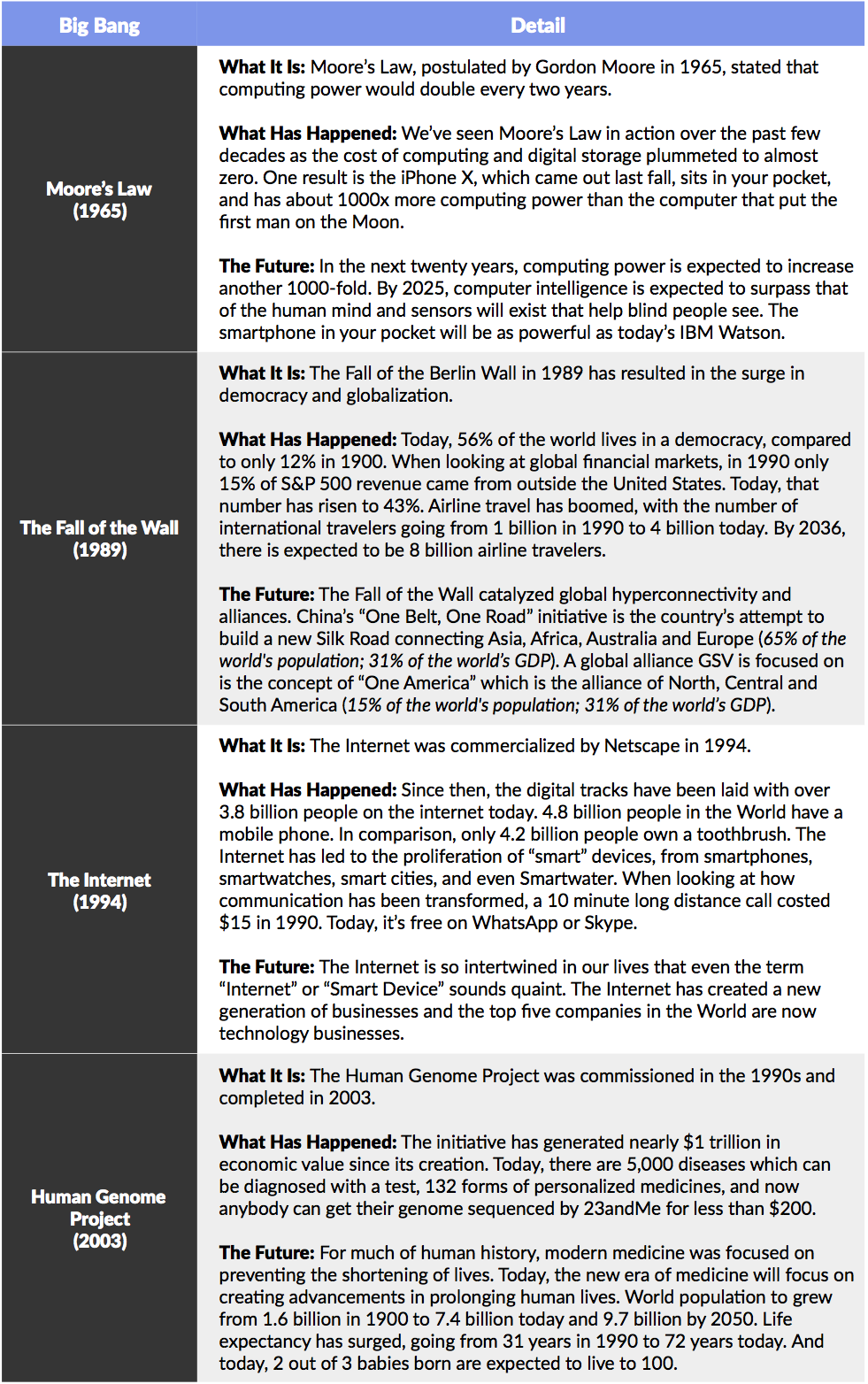
Ironically, our education system would be one of the few elements of modern society that would still be recognizable to Columbus. The ASU + GSV Summit is all about daring to imagine — and to create — the Future of the Future for education and talent.
NAVIGATING AN UNCERTAIN FUTURE: THE 7 C’s
The world of Columbus was defined by the Seven Seas — North Pacific Ocean, South Pacific Ocean, North Atlantic Ocean, South Atlantic Ocean, Arctic Sea, Indian Ocean, and Antarctic Sea.
But the Future of the Future will increasingly be defined by the “7 C’s” of education and talent: Critical Thinking, Creativity, Communication, Cultural Fluency, Civic Engagement, Collaboration, and Character. Our keynote speakers highlighted these qualities.

44th President of the United States George W. Bush kicked off the Summit in a fireside chat with OZY CEO Carlos Watson. During his remarks, President Bush shared a candid reflection of his experience leading the United States and his efforts to create broader access to high quality education post presidency.
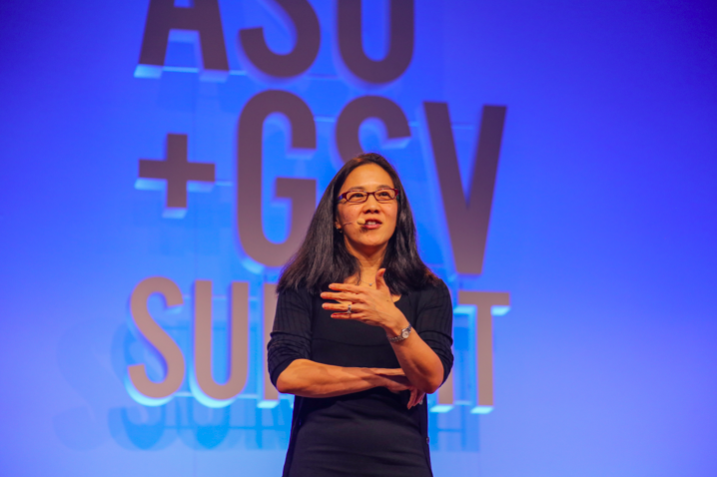
Angela Duckworth, MacArthur “Genius” grant winner, author of Grit: The Power of Passion and Perseverance, and a co-founder of the University of Pennsylvania Character Lab, shared her perspective on the type of character individuals need to persist through challenges and thrive.
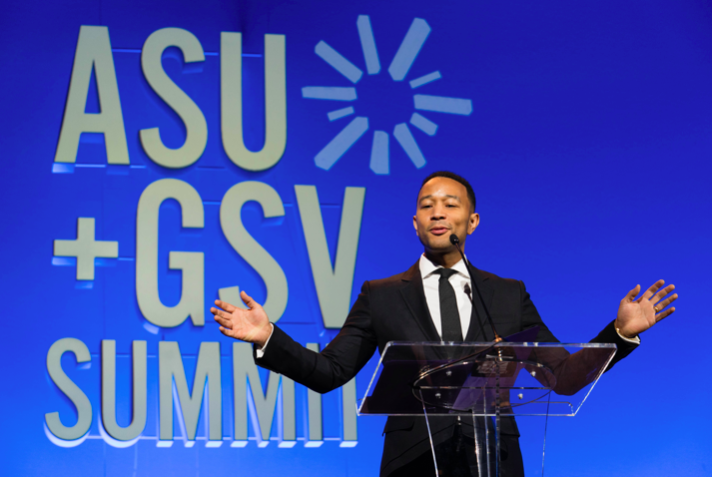
Academy and Grammy award winning artist John Legend closed the second day of the ASU+GSV Summit, reflecting on the critical role education and mentorship have played in his success. Additionally, Legend shared an update on his work to support underserved communities through programs like LRNG Innovators, which brings together teachers, families, and local employers to cultivate talent through innovative learning models.
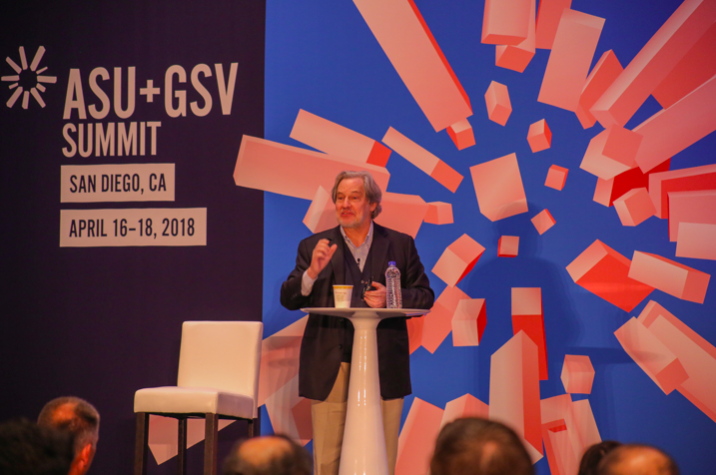
Legendary education entrepreneur Chris Whittle shared a vision for the 21st century school, including an update on his latest ground-breaking venture — Whittle School & Studios, the world’s first global and modern school. Whittle School will launch its inaugural 2,500 student campuses in Washington D.C. and Shenzhen in the fall of 2019.
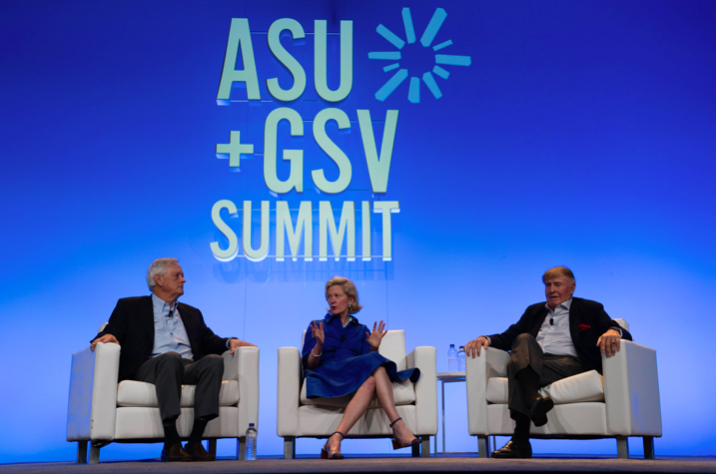
Venture Capitalists Dick Kramlich (Chairman, NEA) and Deborah Quazzo (Managing Partner, GSV Acceleration) in a moderated conversation by Bill Sahlman (Professor, Harvard Business School) spoke about the rise of entrepreneurship and venture capital investment to address the world’s most challenging problems.
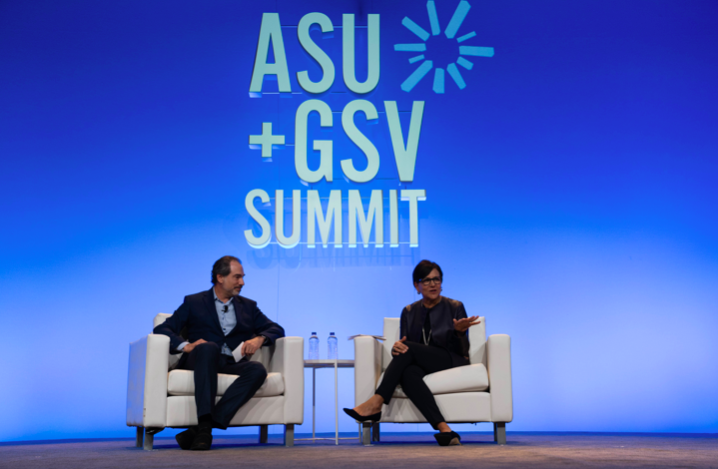
In an interview with Richard Sarnoff (Chairman of Media, Entertainment and Education Investing, KKR), Penny Pritzker (Former U.S. Secretary of Commerce) discussed her vision for the future of work, education, and business — as well as her current areas of focus in all three areas.
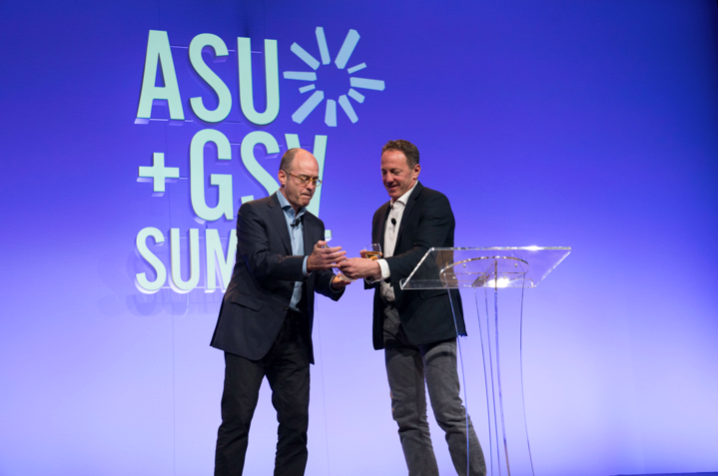
John Katzman — serial entrepreneur and education innovation pioneer — was awarded the 6th Annual GSV Lifetime Achievement Award. Katzman founded The Princeton Review in 1981 out of his Princeton University dorm room and then co-founded 2U (NASDAQ: TWOU) in 2008. John is currently the Founder and CEO of The Noodle Companies, which connects learners, educators, and innovative technologies. Today the Noodle platform includes Noodle Search, Noodle Partners, Noodle Markets and Noodle Pros.
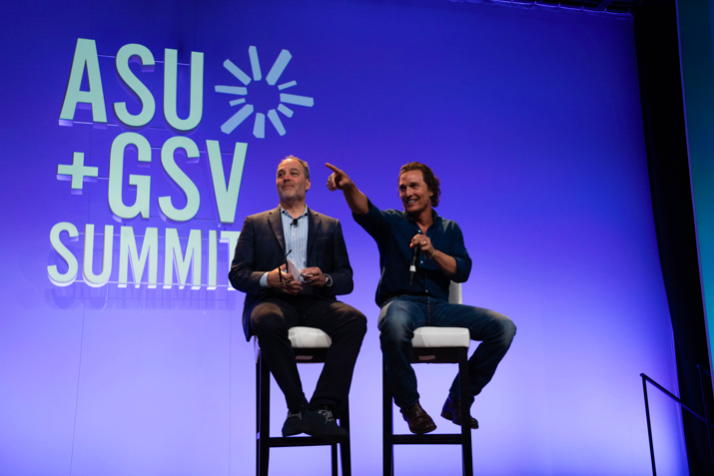
Academy Award winning actor Matthew McConaughey discussed his efforts to level the playing field through the just keep livin’ foundation, which supports young people with holistic programs focused on education, healthy living, and good decision-making.
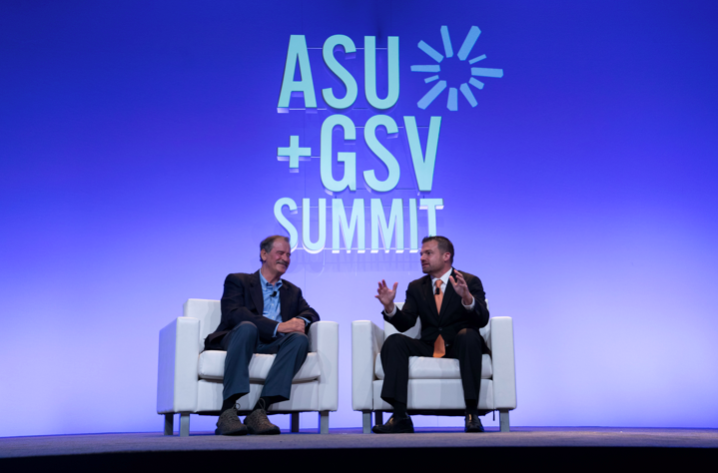
Mexico’s 55th President Vicente Fox closed the 2018 ASU+GSV Summit, sharing his thoughts on the importance of global collaboration to improve outcomes. In a moderated fireside chat with Reality Changers Founder and President Christopher Yanov, President Fox shared the story of his upbringing and his ascendence from Coca-Cola delivery truck driver to CEO of Coke Mexico, and eventually to the Presidency of the country. He also discussed the impact that his presidential library and academy, Centro Fox, is having on Mexico’s underprivileged populations.
